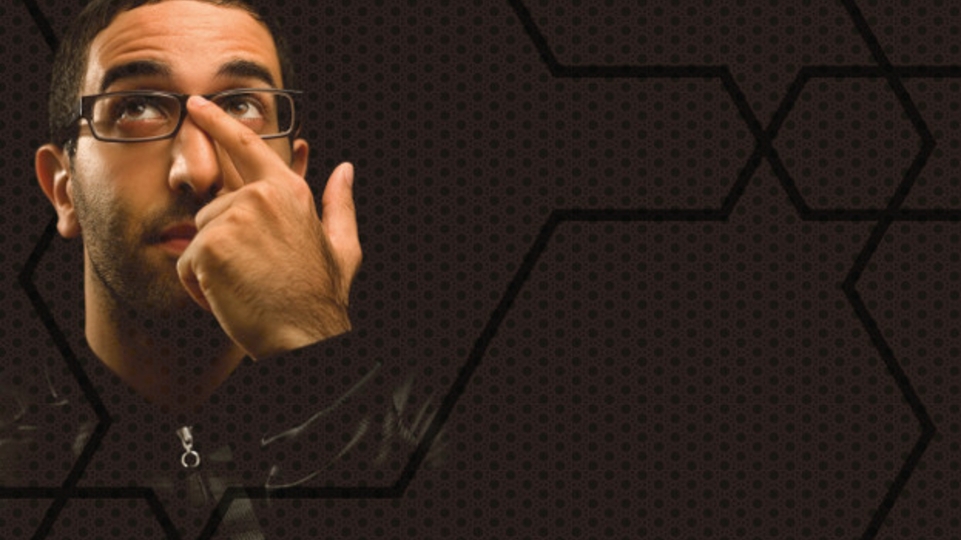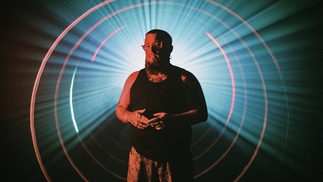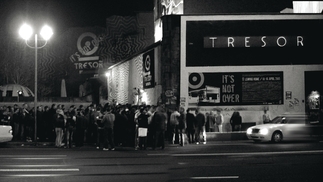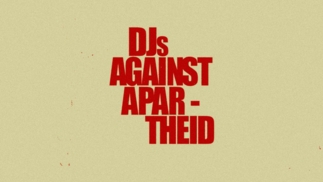ARIL BRIKHA: PLAYING BY HIS OWN RULES
Techno original Aril Brikha is one of the smartest producers around...

The day before DJ Mag speaks to Brikha, the producer played a mammoth Berghain Sunday session, enticing the crowd with his deep techno blends and melodic hooks. After 12 hours at Berghain, many artists might follow the party trail, hitting up an after-hours club or bar, or maybe just hitting the sack to recover. Not so for Brikha, who simply completed his Sunday yoga session.
It’s an insight into the mind of someone who’s always needed far more than just beats and bleeps in his life, yet has produced his share of seminal techno records.
“Music has always been a big passion and a big part of my life, but never really time-wise,” says Brikha. “I’m not one of those guys that does 24-hour sessions in the studio and can’t let go. I’m always, ‘Ok, time for a coffee’, or ‘time to eat’. It’s pretty intense when I am into [making music] and I can’t do it for longer than four or five hours.”
TAKING HIS TIME
Sometimes, though, a few hours is more than enough. The track ‘Groove La Chord’ — Brikha’s immense, iconic stripped-back-Detroit techno burner — was finalised and recorded in just half an hour, whilst he waited on a girl to come by for their date.
Recorded when he was just 19, ‘Groove La Chord’ was one of the first tracks Brikha made after moving from rural Sweden to Stockholm, signalling the start of his musical career, even if he didn’t know it quite then. “[The track] just sat there for a couple of years while I was trying to get my demos out to labels in Sweden and then in Europe. That didn’t go at all well,” explains Brikha.
For the hell of it, he sent ‘Groove La Chord’ and another track to two underground Detroit labels, 430 West and Derrick May’s Transmat. To Brikha’s amazement, both got back to him — via fax, he recalls — both wanting to release ‘Groove La Chord’, which Brikha had included only as a B-side.
Eventually released through Transmat on the ‘Art of Vengeance’ EP (along with ‘Wayback’), the pulsing, raw energy of ‘Groove La Chord’ saluted the Detroit heavyweights (Robert Hood, Basic Channel, Underground Resistance) that inspired Brikha. This lush, rolling take on the Detroit sound was to become Brikha’s trademark for several years, helping to shape the sound of his acclaimed Transmat-released debut album, ‘Deeparture in Time’, before morphing into something altogether different on second album (eight years later), ‘Ex Machina’, which took a more overtly melodic direction, with elements of progressive and trance finding their way into the sound.
But despite this unique edge and willingness to evolve his sound, Brikha has always taken his time with writing. Never one to churn out tracks, the producer embodies favouring quality over quantity, reflected in a small but undeniably accomplished back catalogue. It’s a production ethos that sits well with his world view, rooted in realism. “This romantic idea of letting inspiration come — I’ve noticed after a couple of years of trying it that it’s actually bullshit, and you just have to sit down and take the time.”

BUILDING BRIDGES
Once again, it’s a sign that the producer doesn’t let music rule his life, but for someone who prefers to keep music as a hobby or passion, Brikha is still acutely aware of its potential to speak to people, unite them, even — sometimes under incredibly difficult circumstances.
His most recent project is a collaborative EP, ‘Hope’, with Israeli techno duo Deep’a & Biri. The tracks on the EP (one original from Brikha, one original from Deep’a & Biri, with each act also remixing the other) certainly stand up as intelligent, deep, refined techno triumphs by themselves, but the project is also a hugely significant one for other, perhaps less obvious, reasons; ‘Hope’ openly and intentionally unites artists from Iran (the birthplace of Brikha — who has Assyrian ancestry — before his family moved to Sweden when he was three) and Israel (Deep’a & Biri), two countries that have a notoriously problematic relationship due to the ongoing religious, political and military tensions between Israel and Palestine, different interpretations of which have caused a breakdown in relations between Iran and Israel.
For years, Brikha turned down invitations to play in Israel due to these tensions, feeling uncomfortable at the thought of visiting the country. “It was more of what I’d describe as a silent protest,” says Brikha, “but after seven years I decided that it doesn’t make sense to have this silent protest of refusing to go to a country, and I’d prefer to actually go there and meet the people.”
Brikha finally arrived in Tel Aviv, meeting Deep’a & Biri, who had sent the invitation for Brikha to play at a party for Tel Aviv techno label Black Crow. The three of them bonded immediately, as each had suspected.
“When we first met Aril, him being an Iranian was never an issue,” says Deep’a. “We just saw him as a normal person, an artist that we really appreciate and we couldn’t care less about where he was born.”
But Brikha’s visit was not without incident. The night of the Black Crow show in 2012 happened to be the same night that Palestinian missiles were fired at Tel Aviv, for the first time since 1991, resulting in panic throughout much of the city. “The club [The Block] would usually have 800-1000 people,” says Brikha, “but we ended up with 50-100 people, maybe not even that, so for the brave people that came out, it was obviously a special night.”
The ‘Hope’ EP was inspired by that incident on Brikha’s first trip to Israel — he has since gone back several times, and Deep’a & Biri eventually asked the producer about a collaboration. “I said I’d love to do that on one condition,” says Brikha, “that we take the profit and donate it to a Palestinian/Israeli peace charity.” And that’s exactly what happened, which is testament to the capability of music to cross barriers and genuinely bring people together, even in the most adverse of conditions.
Written down, it’s hard not to find that statement, well, clichéd, even cheesy. But as Brikha — a self-confessed pessimist and not someone known for engaging in hyperbole — says, it’s only cheesy if that’s how you choose to label it. “I don’t think it’s cheesy. [Music] is by far the most powerful tool,” he says. “[with electronic music], it’s the ultimate way of not judging. If you hear a track or a song, you like it before you even know who made it. There’s no way of judging it, until you see a name and you associate the name with a certain area in the world, or a country.”
Deep’a & Biri take a similar view. “We think that music, and especially dance music, speaks a universal language and can bring different people together,” says Deep’a. “It can overcome the obstacle of race and make the connection, but then it’s ... up to the people to decide [about] being a part of a real change.”
As Brikha makes you realise, there are things in life far bigger than music, but if music can play any part in helping the world run even a little smoother and more peacefully, that can only be a positive. And if that music bears Brikha’s deep, rich electronic mark, so much the better.





